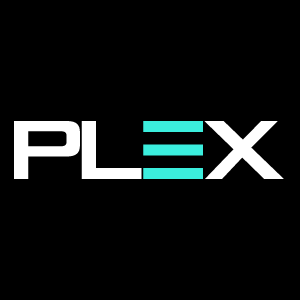To say that 2020 saw significant disruption in supply chains and supply chain planning would be an understatement. Not since World War II have both national and global economies encountered the level of stress, pressure, and magnitude in global upheavals of supply chains.
As 2021 begins to take shape, leaders are looking for guidance on what to expect next. Companies have responded to supply chain planning disruptions in ways they could not have predicted, and wonder what will remain of the “new normal” once the worst of the pandemic passes. They also seek to understand what can be learned to improve supply chain planning and insulate them against future disruption.
Key Issues for Supply Chain Planning in 2021
1. COVID-19
No analysis could begin without looking at what COVID-19 has done to supply chain planning and what to expect going forward. Aside from severe economic pain due to loss or drop in business levels, companies have quickly moved online to recoup business.
Many did so sooner than imagined, while others had never planned to sell directly until this situation occurred. This sudden move to new sales models — which includes online sales — impacted supply chain planning across many industries. As a result, for those supply chains that continue to engage online, there are challenges ahead.
One positive aspect of COVID-19's impact is that the severity of the crisis and its velocity helped leaders and decision-makers understand where existing faults, gaps, and cracks were. As leaders continue to rise to the occasion, we can expect new ways of addressing these gaps which will improve overall end-to-end visibility within the supply chain. More automation, more collaboration, and a better handle on data analytics across entire supply chains will enhance visibility.
2. Trade Policy
2020 saw a continuation of trade wars through tariffs and renegotiation of treaties even as the COVID-19 crisis raged. While the US was heavily targeting China — a major supplier for many US companies — it also applied these policies to other countries. And while the US was focusing on trade policy and tariff application, the UK and the European Union was dealing with messy trade policy spats caused by Brexit.
For 2021, demand and supply planning professionals adjusting to these issues for several years now find a more settled Brexit. There’s also the new US administration that’s reversing many of the last four years' policies. The challenges will be whether to return to existing vendors, continue with newly sourced suppliers or find some blend that mitigates the risk of future trade issues.
Any changes in trade policy will impact supply chain management across the US. Most of these changes will come in phases as the new administration works to prevent a shock to the system. But already, inventory optimization and increased vendor and supplier collaboration are critical paths to improving supplier relations and navigating the rapidly changing environment.
3. Reshoring and Near-shoring
As a direct result of both COVID-19 and trade policy, many companies and industries have undertaken reshoring and near-shoring. Some of this was out of necessity for survival, while others were forced on them by trade issues. However, the question remains whether this is a permanent realignment or will slowly migrate back to the previous status quo.
This year, it appears that any decisions on reshoring's long-term benefits will be strategic. Both the US and the European Union are looking at developing more native capability in areas such as semiconductors, medical devices, and medical PPE. In many cases, these industry segments had been ceded to the lowest cost overseas supplier — a strategy now being questioned due to recent challenges.
2020 Postmortem
A postmortem on 2020 provides several insights into how 2021 will shape up. Specific segments that were thought of as part of the supply chain in general now have taken on new importance. One example of this would be food supply chains. With the sudden shift in delivery methods and the number of people working from home, many consumers are navigating shortages for the first time in their lives.
Moreover, as a blend of revised trade policies and new ways of working define new challenges and paths for supply chain management, issues such as inventory optimization, end-to-end visibility, and supplier management are moving to the forefront. These issues provide supply planning professionals with the opportunity to build a more comprehensive and data-driven supply chain process that is not predominantly procurement-driven.
Automation and Software for Addressing the New Normal
2020 brought unprecedented trials to supply chain planning. As 2021 matures, these will continue to impact decisions across a range of issues. However, solutions to help mitigate risk and develop a more comprehensive, data-driven supply chain management system are possible.
We can confirm the rise in importance of more end-to-end transparency, better vendor collaboration, inventory optimization, and vendor management requirements. This means companies will need to increase automation and analytics capability for the data used to make supply chain decisions. With advanced demand and supply planning software from Plex DemandCaster Supply Chain Planning, accurate forecasts and comprehensive supply chain planning are possible. All of this plus advanced what-if scenarios mean that planners can use near real-time data to make better decisions with confidence to address the challenges ahead.
Discover how Plex DemandCaster can improve and transform your supply chain planning by booking a demo today.
Related Articles
